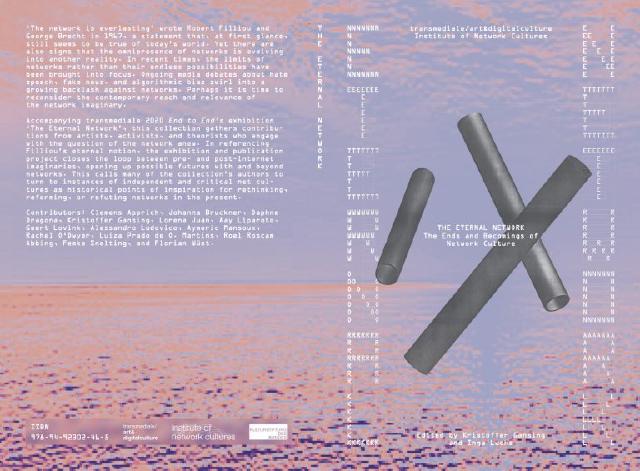Seven Theses On The Fediverse And The Becoming Of Floss

Together with Aymeric Mansoux I co-authored an essay that looks at the interrelation between Free/Libre Open Source Software(F/LOSS) and the Fediverse, an alternative social media network. Through seven different theses, the essay explores how this latest federated social network challenges both the established forms of production and governance in F/LOSS software, as well as the governance of social media platforms.
Table of Contents:
- Meet the Fediverse
- The Fediverse as the Transition from Meme Wars to Network Wars
- The Fediverse as an Ongoing Critique of Openness
- The Fediverse as a Site for Online Agonistic Pluralism
- The Fediverse as a Shift from a Technical to a Social Understanding of Privacy
- The Fediverse as a Way Out of Data Sharecropping and Free Labor
- The Fediverse as the Rise of a New Kind of Usership
- The Fediverse as the End of Free/Libre and Open Source Software as We Know It
Download the essay on Monoskop.(mirror)
The essay has also been translated to German and French:
The text was published by as part of The Eternal Network: The Ends and Becomings of Network Culture by Institute of Network Cultures and Transmediale.
The full publication is available both as PDF(mirror)and EPUB(mirror)
The Eternal Network: The Ends and Becomings of Network Culture
‘The network is everlasting’ wrote Robert Filliou and George Brecht in 1967, a statement that, at first glance, still seems to be true of today’s world. Yet there are also signs that the omnipresence of networks is evolving into another reality. In recent times, the limits of networks rather than their endless possibilities have been brought into focus. Ongoing media debates about hate speech, fake news, and algorithmic bias swirl into a growing backlash against networks. Perhaps it is time to reconsider the contemporary reach and relevance of the network imaginary.
Accompanying transmediale 2020 End to End’s exhibition ‘The Eternal Network’, this collection gathers contributions from artists, activists, and theorists who engage with the question of the network anew. In referencing Filliou’s eternal notion, the exhibition and publication project closes the loop between pre- and post-internet imaginaries, opening up possible futures with and beyond networks. This calls many of the collection’s authors to turn to instances of independent and critical net cultures as historical points of inspiration for rethinking, reforming, or refuting networks in the present.
COLOPHON
Authors: Clemens Apprich, Johanna Bruckner, Daphne Dragona, Kristoffer Gansing, Lorena Juan, Aay Liparoto, Geert Lovink, Alessandro Ludovico, Aymeric Mansoux, Rachel O’Dwyer, Luiza Prado de O. Martins, Roel Roscam Abbing, Femke Snelting, and Florian Wüst.
Editors: Kristoffer Gansing & Inga Luchs
Editorial coordination: Tabea Hamperl
Copy-editing: Hannah Gregory and Rebecca Bligh
Design and EPUB development: Barbara Dubbeldam
Cover design: The Laboratory of Manuel Bürger (Simon Schindele, Manuel Bürger)
Published by the Institute of Network Cultures, Amsterdam, and transmediale e.V., Berlin, 2020.
ISBN print-on-demand: 978-94-92302-46-5 ISBN EPUB: 978-94-92302-45-8
This publication is licensed under the Creative Commons Attribution-NonCommercial-NoDerrivatives 4.0 International (CC BY-NC-SA 4.0)
Cory Doctorow wrote about our article in Solving The Moderator’s Trilemma, which is pretty neat.